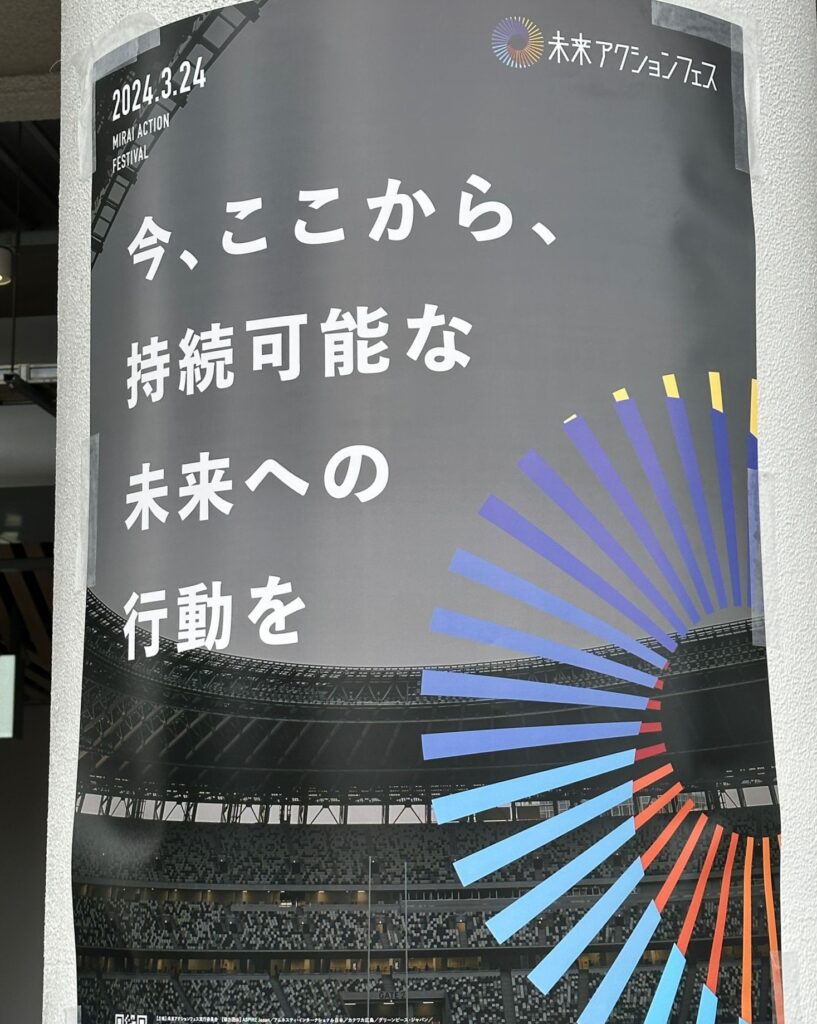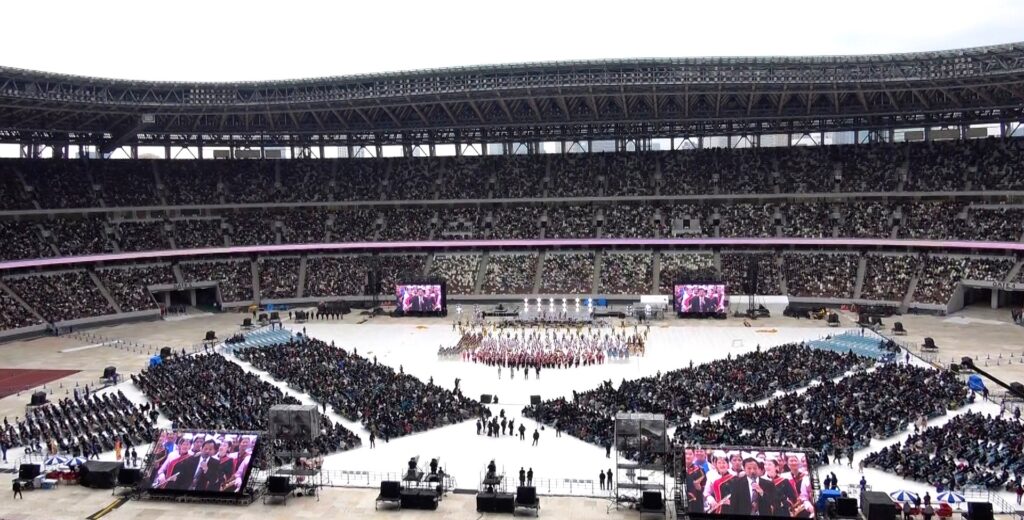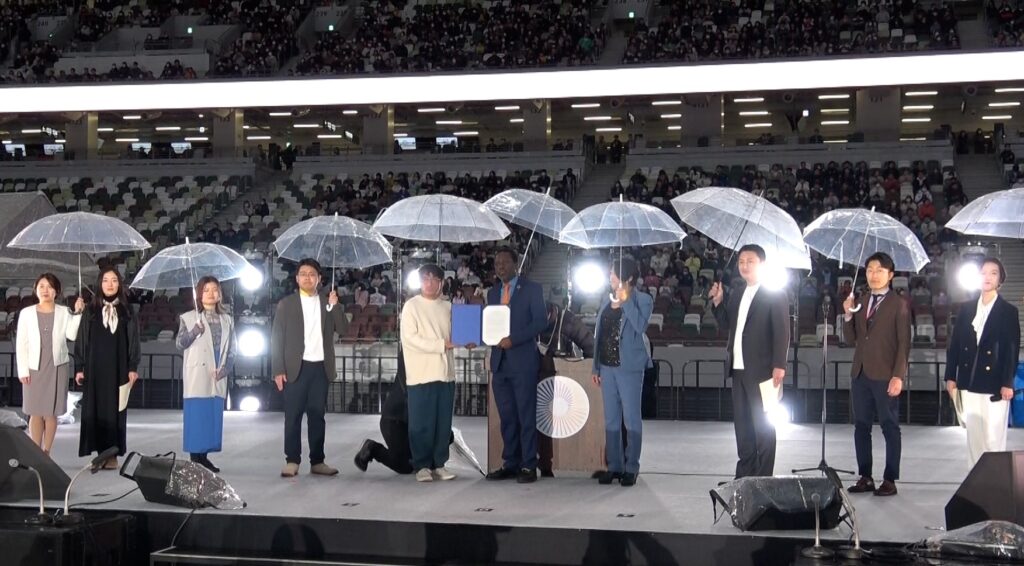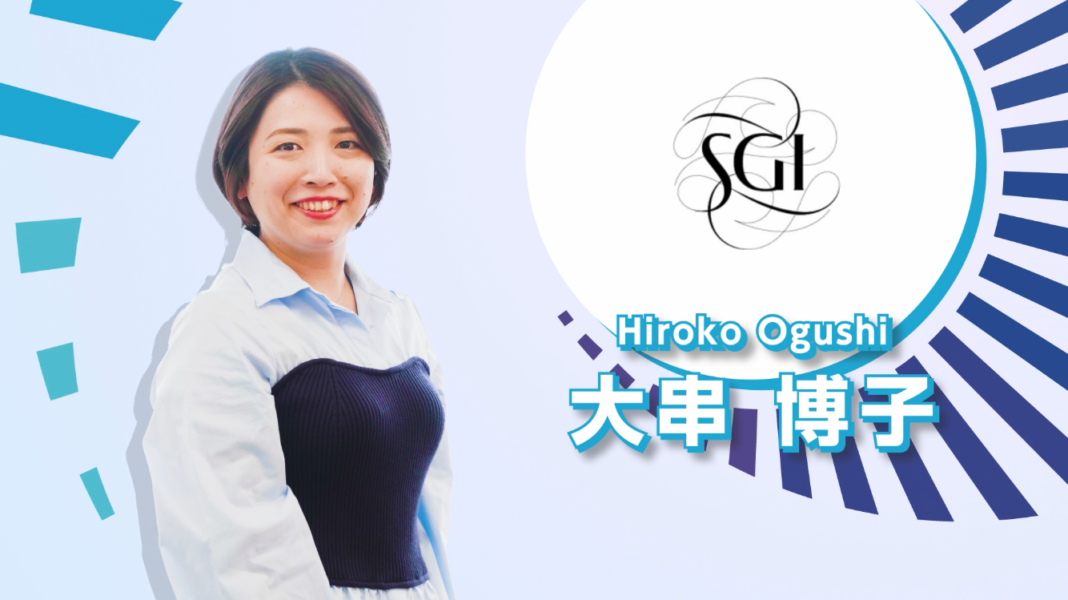Hiroko Ogushi is a Committee Member, Future Action Festival Organizing Committee Co-representative, Soka Gakkai International (SGI) youth
by Hiroko Ogushi
Tokyo (INPS Japan) —We are at the tipping point in human history, facing major existential crises. The conflict between Russia and Ukraine has heightened the risk of a nuclear weapon being used since the Cold War. Furthermore, the climate crisis is accelerating. In these crises, the most affected are those in vulnerable situations. |JAPANESE|

Amidst all these crises, the UN Summit of the Future will be held for the first time in September to strengthen global cooperation and revitalize the multilateral approach to tackle these challenges. It will be a once-in-a-generation opportunity to shift the course of humanity to a peaceful world where no one is left behind.
Toward the Summit, together with some youth-led civil society organizations in Japan, we decided to organize the “Future Action Festival” to create momentum to strengthen solidarity toward a peaceful and sustainable future.
The Future Action Festival Organizing Committee comprising of representatives from six organizations, including GeNuine, Greenpeace Japan, Japan Youth Council, Kakuwaka Hiroshima, Youth for TPNW, and Soka Gakkai International (SGI) youth, was established in the summer of 2023.Among all the global challenges, we decided to focus on addressing two major existential threats today – nuclear weapons and the climate crisis.
While youth engagement in these issues is more crucial than ever, there is also a need to cultivate awareness among youth in being agents of change. The event is not a summit, but a “festival” that is led by, with and for the youth and highlights the aspect of joyfulness in youth coming together for a better future.
To achieve a unique event, the committee engaged with as many actors as possible towards the festival. Throughout the process, the festival was joined by multiple stakeholders, including NGOs, private sectors, artists, and UN representatives, in many ways.
Engagement with corporations played a significant role in making the festival possible and raising awareness in the private sector. For example, Japan Climate Leaders Partnership (JCLP), which comprises of more than 240 corporations targeting zero-emission, agreed with the purpose of our event and supported us since the establishment of the organizing committee. In the end, the sponsorship and participation by more than 160 corporations not only supported the event financially but opened new possibilities in the sense of corporations’ involvement in abolishing nuclear weapons.
The festival included entertainment elements performed by professional singers, comedians, YouTubers, and marching bands. The participation and active promotion of the event by those in the entertainment sector mobilized many people, including those who were not very much interested in the thematic issues, making the event uniquely engaging.

Finally, the engagement with the UN expanded the reach and possibilities of the festival. For example, one of the major advocates and partners of the event was the United Nations Information Centre (UNIC) in Tokyo. Since the beginning of its preparation, UNIC supported us in gaining credibility with diverse stakeholders, especially corporations and artists. In addition, the first Assistant Secretary-General for Youth Affairs Felipe Paullier sent us a video message which called upon youth participants to work together for a world without nuclear weapons and a world that is sustainable for all. At the end of the event, the Rector of the United Nations University Professor Tshilidzi Marwala gave his remarks, emphasizing the significance of the role played by youth in tackling these global issues. The partnership with the UN became the core driving force for the event’s success.
The strong partnerships and youth engagement resulted in the success of the festival held at the Japan National Stadium in Tokyo on March 24th. It gathered more than 60,000 participants at the venue and was viewed by over 500,000 people online through livestream.

One of the key purposes of the event was to deliver youth voices to the UN. Toward the festival, the organizing committee conducted a youth awareness survey on nuclear weapons, the climate crisis, and the UN. About 120,000 responses from individuals ranging between their 10s to 40s were collected from November 2023 to February 2024. The results showed that young people have a high level of awareness on climate issues and that they think that nuclear weapons are not necessary. The youth want to contribute to addressing these issues. At the same time, more than half of the respondents find it difficult to have hope for the future. About eighty percent of all the respondents felt that youth voices are not reflected enough in national and government policies. Young people are dissatisfied with the status quo and seek a systemic change.
Based on the outcome, the organizing committee created a joint statement intended for the UN Summit of the Future to ensure youth voices are heard and reflected in the discussion process. The statement was handed over to Prof. Marwala at the event.
This is only the beginning of our journey to create a great momentum of youth standing up for a better future. As a next step to amplify youth voices, we plan to communicate with MOFA, a focal point of the Summit of the Future. We, the organizing committee, will also participate in the UN Civil Society Conference that will take place in Nairobi, Kenya in May, which is a key milestone for civil society to give their input to the Member States. We hope to convey the survey results to the co-chairs and UN high-level officials during the conference. In addition, at a national level, we will engage with the government, the UN, and like-minded organizations to contribute to the Pact for the Future in a meaningful way.

In addressing daunting global issues, we may feel a sense of hopelessness sometimes. However, through this festival, we learned that when diverse stakeholders of different background unite to create change, their solidarity serves as a beacon of hope for the youth. It is our responsibility to create a world where young people feel hopeful. Starting from youth in Japan, we will move forward, taking concrete steps to extend our local and global solidarity together with the UN and multiple stakeholders.
INPS Japan
Related articles:
Ahead of UN Summit of the Future, Mobilizing Youth for Change




